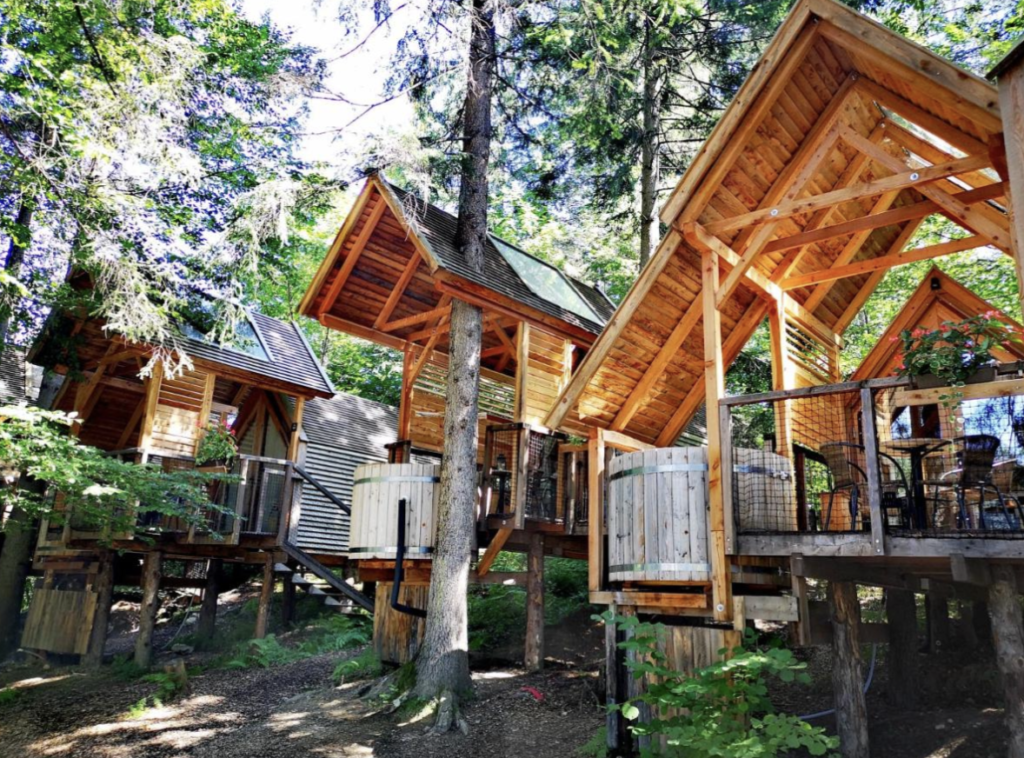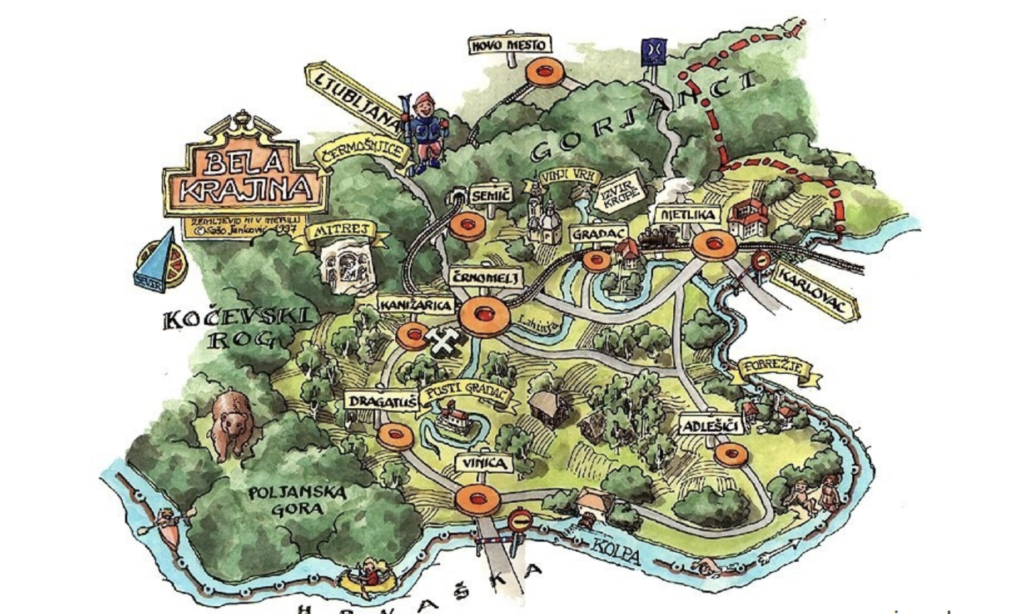By Andrea Tucci,
Hotel Ribno is the first Slovenian zero waste hotel. After two years of introducing measures to reduce waste and ensure the separate collection of waste, Hotel Ribno has succeeded in achieving that 92% of the waste is collected separately. But this process required much more than just filling out forms. Without the commitment of the management and employees, who often weighed and examined the waste, it would not be possible to obtain such a title. It is crucial to change the entire operational policy and introduce measures such as placing bins for separate waste collection in hallways and offering food without packaging. Each and every step matters.

Hotel Ribno
A zero-waste society or a society with less municipal waste, they are supported by “Ecologists Without Borders in the national Zero Waste organisation for Slovenia”, which is part of the Zero Waste Europe network.
The main purpose of the concept, which has been developing in more than 350 local communities around Europe, including the Slovenian municipalities of Bled, Ljubljana, Vrhnika, Log-Dragomer, Borovnica, Gorje, Radovljica, Slovenske Konjice and Žalec. Waste will always be produced, and the zero waste concept is merely a map of different paths to help us reduce the amount of waste. They are obviously on the right track, considering that, with concerted efforts, all the aforementioned municipalities have succeeded in preventing a total of 15,750 tonnes of mixed municipal waste from being generated, thereby saving 3 million EUR. A positive side effect of this project is the forging of ties and cooperation between all the stakeholders involved.

At the other end of Slovenia, the zero waste map has been used by the organisers of the Jurjevanje folklore festival in Bela Krajina, Art Camp and (Z)mešani festival. Infact, they have consistently promoted the separate collection of waste and have been introducing measures to prevent waste from being produced – they have been striving to reduce the use of plastic for one-time use and installing drinking water fountains at festival sites. Their responsible attitude to the environment also being reflected in the content of their programmes. All the aforementioned examples of good practice demonstrate that the zero waste concept is about much more than just waste. By selecting appropriate measures, we can reduce impacts on climate change, also due to reduced energy and water consumption and sustainable mobility. The alpha and omega of a successful transition to a zero waste society is communication.
Improved communication increases the level of services, providing a significant competitive edge. The trend towards green has also been demonstrated by other tourism providers, who have visited the Slovenian zero waste pearls and are following their example. Moreover, this trend is also reflected in the media, which can no longer overlook zero waste practices when covering environmental topics. Accordingly, records are being broken not only with the numbers of overnight stays but also with media coverage of zero waste, which has increased threefold in the past four years. This a good thing.
Slovenian gastronomy
When it comes to gastronomy, Slovenia has always followed the sustainability principles of the “from farm to fork” approach, focusing on seasonal, local, and organic dishes. But 2021 was a milestone. It was the year, when Slovenia became the European Region of Gastronomy, and also the year when restaurants and other food service providers were invited to join the green community of tourist destinations, accommodation providers, natural parks, tourist agencies, and tourist attractions, united under the Green Scheme of Slovenian Tourism.
Zero Waste tourists
As individuals, we can also contribute to reducing the impact of tourism on the environment; in 2011 the tourism industry was responsible for the generation of 48 tonnes of waste, accounting for 14% of all generated municipal waste at a global level. For sure should avoid the use of plastic items for one-time use, support environment-friendly accommodation Surveys show that, when on holidays, people behave in a much more wasteful way, which is why we should reflect on how individual changes can help make a great impact together. With our green behaviour, we should set an example to others when travelling around the world and to foreign tourists in Slovenia.
Slovenia continues to fly the green flag and remains a green spot on the world map for a long time to come. They are on the right track. For sure they can pride ourselves on being the only country in the world with a zero waste capital city, a zero waste hotel and zero waste events.
